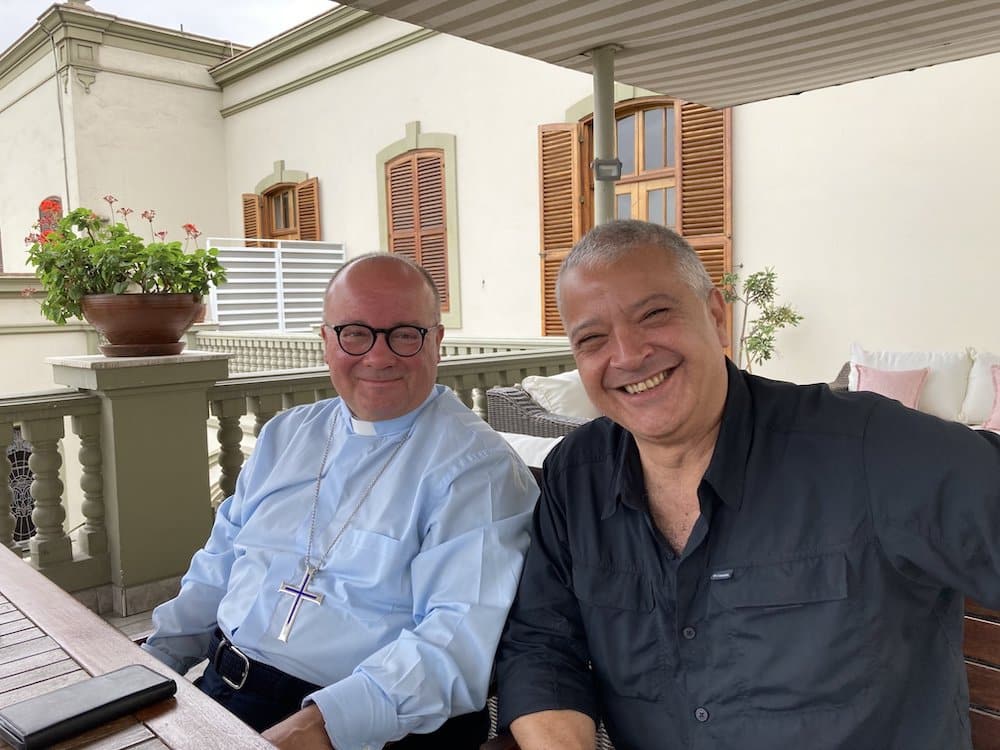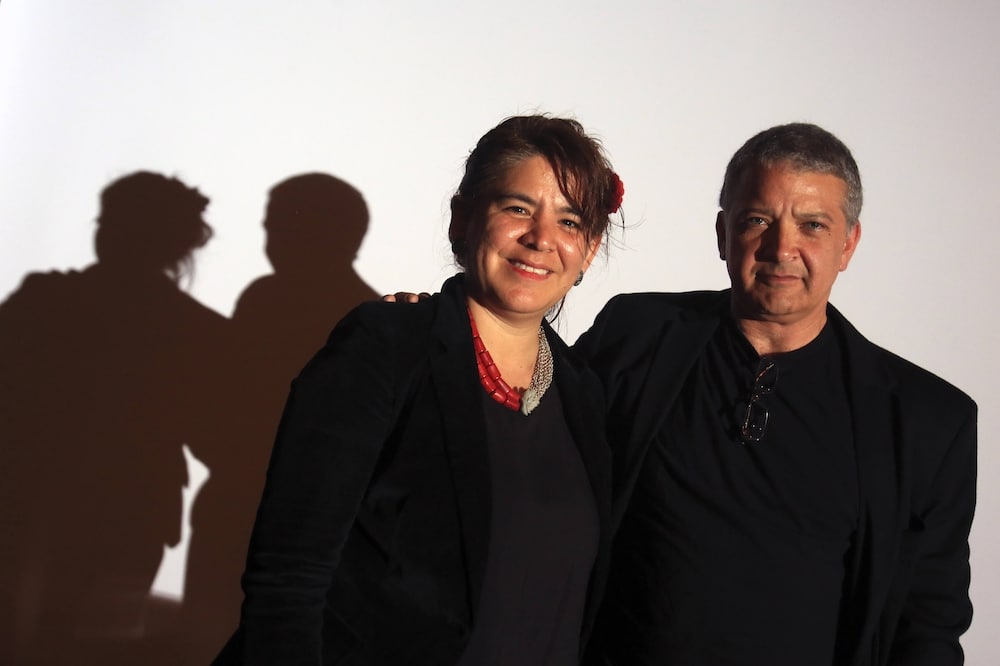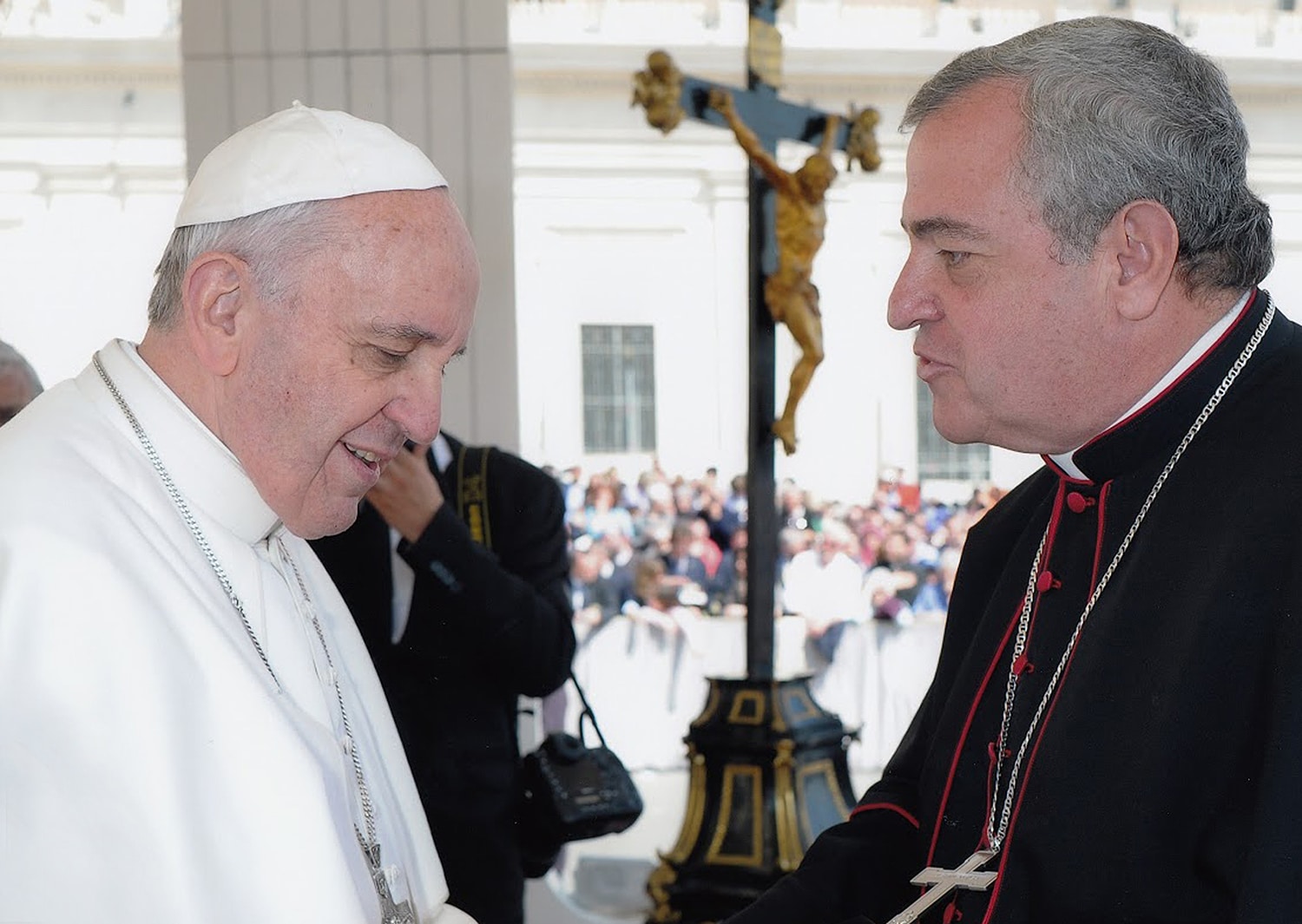SÃO PAULO (OSV News) — A Vatican investigation of the Peruvian Catholic organization Sodalitium Christianae Vitae, launched in 2023 after more than two decades of spiritual and sexual abuse allegations, has resulted in the resignation of one of its most important members, Archbishop José Antonio Eguren of Piura.
The Vatican announced April 2 that Archbishop Eguren, accused of involvement in abuse cover-up operations waged by the religious group, stepped down without mentioning the official reasons. The archbishop is 67, eight years shy of the age canon law requires bishops to turn in their resignation to the pope.
“We can certainly say that last year’s visit of Malta Archbishop Charles Scicluna and Spanish Msgr. Jordi Bertomeu is connected to (Archbishop) Eguren’s resignation,” journalist Paola Ugaz told OSV News.
Journalists investigate abuse allegations
Ugaz and fellow journalist Pedro Salinas published the book “Half Monks, Half Soldiers” in 2015, which described numerous cases of abuse perpetrated over several years by the leaders of Sodalitium.
The work of the two reporters provoked a scandal in the Peruvian church by making the allegations made for years by former members of the group visible.

The July 2023 visit of Archbishop and Msgr. Bertomeu to Peru to investigate the lay organization Sodalitium has been received with confidence by many of the group’s victims, who hoped it would be finally dissolved. Some, however, say, they lost hope that the case will be resolved.
The history of Sodalitium
Once a powerful lay institution with massive membership not only in Peru, but in several other countries, Sodalitium was accused of promoting systemic spiritual, physical and sexual abuse against dozens of members for decades, as well as financial corruption.
Sodalitium was founded by lay Catholic Luis Fernando Figari in 1971 and was acknowledged as a society of apostolic life, approved by St. John Paul II in 1997. With a reputation of being a conservative and elitist organization, it has male and female branches, besides lay movements.
Despite church interventions on different occasions in past years, “nothing was done to hold the abusers responsible” and they “kept perpetrating crimes,” theologian Rocio Figueroa, a former member of Sodalitium, told OSV News in July. A lecturer at Good Shepherd College in New Zealand, Figueroa spent 22 years with the group.
The accusations involved Figari, the founder, and other top members.
Vatican attempts at reform
While Figari was prohibited by the Vatican to have any contact with Sodalitium members and was sent to Rome in 2017, most of the association’s leaders have not suffered relevant sanctions. The Vatican sent representatives to investigate the group and try to reform it on different occasions, but all those attempts failed to lead to significant change.
“But everything changed with the Scicluna-Bertomeu mission. They are clearly working hard and taking unprecedented measures in the Peruvian church’s history in order to adequately deal with the Sodalitium scandal,” Salinas told OSV News.

Since 2018, he and Ugaz have been facing a smear campaign they attribute to the Sodalitium, which includes lawsuits and the publication of books with the intention of discrediting their own work.
Defamation lawsuit filed by Archbishop Eguren
Archbishop Eguren filed a defamation lawsuit in 2018 against Salinas due to an article he had published and won the case. That happened shortly before the Vatican summit on the protection of minors in 2019, when new resolutions were discussed by the hierarchy concerning prevention and punishment of clerical sexual abuse and cover-up.
“It was a new time for the church. Even though I ended up losing the case and had to appeal, I was told by church officials that it would not go too far. Indeed, the apostolic nuncio and the Peruvian episcopate intervened and (Archbishop) Eguren gave up the suit some time later,” Salinas recalled.
Ugaz, however, is still facing a lawsuit for alleged illicit enrichment, which also was filed after she published denouncements against the Sodalitium.
“We recently discovered that the association’s lawyer was acting as an informal adviser for the previous Attorney General Patricia Benavides and influenced the prosecutors not to close the cases against us,” Ugaz affirmed.
Benavides was removed from office in December and an inquiry for corruption was launched against her.
Land grabs for companies connected to the Sodalitium
Ugaz, who also was sued by Archbishop Eguren for publishing articles he claimed were defamatory, discovered that companies connected to the Sodalitium in the region of Piura bought land occupied by an ancient peasant community and tried to force the small growers to abandon their farms.
“The lands’ deeds were forged documents. Those peasants are very poor people who have been there for generations. They tried to discuss their case with the archbishop on several occasions, but he would not even listen to them,” Ugaz lamented.
The community, which lives in the town of Catacaos, has not only been legally harassed but is also under the menace of armed groups.
“(Archbishop) Eguren has always been influential in the region. His resignation will certainly be positive for the peasants’ legal struggle,” she said.
Calls to shut down the organization continue
Salinas received the news of the archbishop’s resignation “as the most important event in 24 years of denouncements against the Sodalitium” and a serious blow to “a dying animal that has been resisting over the past few years.” But he still waits for more.
“The Vatican sent letters last month to the Sodalitium leaders demanding explanations and the adoption of measures. They have 45 days to answer,” he said.
“But I think it’s a sectarian, criminal organization, responsible for abuse, psychological and spiritual manipulation, and even slavery. It has to be shut down,” Salinas went on.
Ugaz declared that the resignation is “an important message from the church to all Catholic associations of that kind.”
“Sodalitium lost its most important stronghold in Peru. It’s a way of telling to all similar groups in the world that they cannot commit those crimes and pretend that nothing happened,” she concluded.





